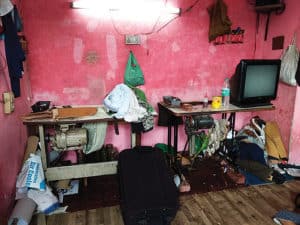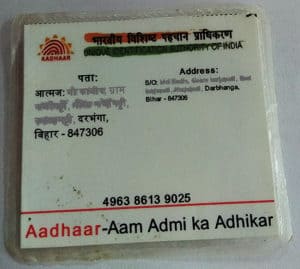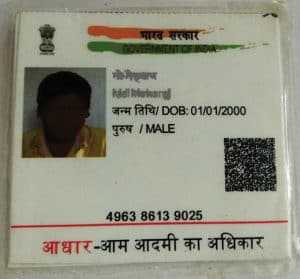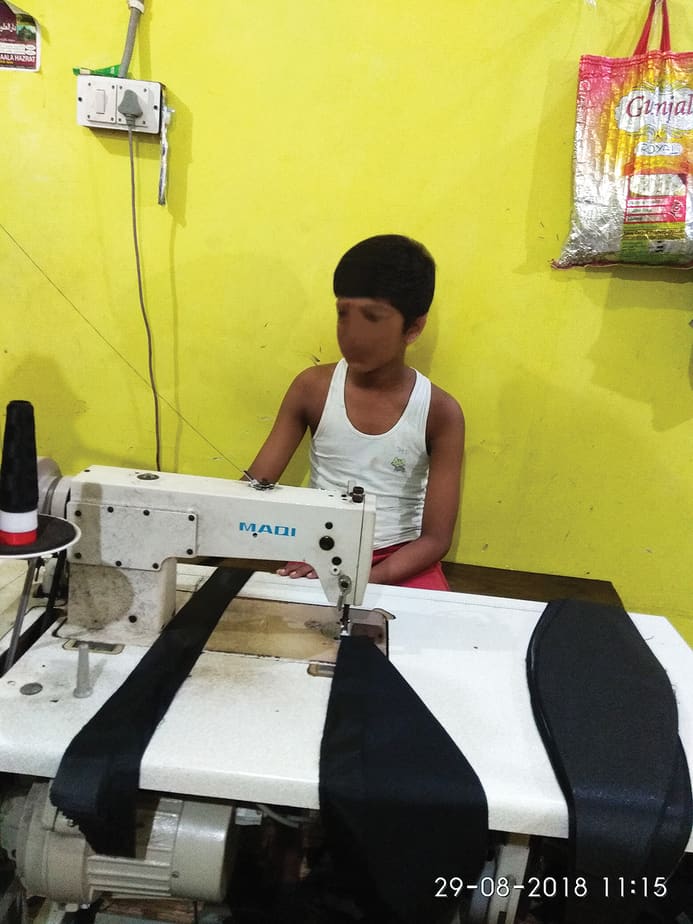‘Unique’ identities are forged to prove that the children labouring in sweat shops are not minors
The dusty lanes not too far from New Delhi railway station – the lifeline connecting all of India to the national capital – leads to the wholesale and manufacturing units of Nabi Karim. When you walk into its heart, lanes lead into smaller by-lanes where not even two persons can walk side by side, and are dark even on an October afternoon.
Two ‘factories’ in this locality were run from 10’x10’ rooms where children from ages eight to 16 laboured till they were rescued. Search operations uncovered one more sweat shop run from a four-storey building. A total of 18 boys were rescued from these units.
The area rife with cases of child labour is a stone’s throw away –100 metres or so – from the Nabi Karim Police station. But the cops, it seems, knew nothing of the illegal activity. It was as if the congested area had fallen off the map of the capital city.

Until the order by Sub Divisional Magistrate of Karol Bagh, Harish Tyayi, led to raids by a team consisting of the police, the Child Welfare Committee (CWC) and NGOs.
AADHAR SAYS 18
The factories churn out school bags, making boys as young as eight years work in their establishments for long hours with a paltry pay of Rs 100 to Rs 200 per week. Two older boys of around 16, however, said they were paid around Rs 6,000 per month.
It might sound substantial, compared to the other, but the Delhi government has specified the minimum wage for an unskilled worker at Rs 10,374 per month or Rs 399 per day.
One child said he had been working in the factory for a week, another said a few months. Some of the young boys said that they went to school but case workers say that their statements could not be relied on as they kept changing.
This, they believe, is because owners of such factories brief the children on what to say. They rehearse the narrative they need to spin out when authorities come calling.
Furthermore, the networking between those living in the area is strong, says a case worker who does not wish to be named. Even authorities, they allege, are involved in this, which allows the owners to be alerted about an impending raid.

What is specifically revealing in this case is the use of fake Aadhaars to establish all the boys’ ages as 18. The cards are obvious forgeries, designed in square sizes but can be seen as having tried to replicate the official document to their best ability with a 12-digit ‘unique number’.
Justice Ventures International (JVI), a non-profit which has in the past six years carried out at least six rescues in Nabi Karim area, has found many such instances where fake Aadhaars were being used.
Hem Raj, JVI’s National Director for North Zone says that a lot of onus lies on the officials, who don’t do in-depth investigation into the areas where these Aadhaars are being made. “When the Aadhar is made in the home state, they put the blame on the parents for having given false information”, Raj adds.

A person closely associated with the rescue operation of the six children says that the children were made to work and live in a squalid environment. They worked for nine to 12 hours.
A 10-year-old child who asked to be sent home was allegedly told by the owner of the factory that he would have to work for another year to pay off the Rs 1,000 paid as ‘advance’ to his parents back home in Bihar.
STUCK FOR THREE YEARS
Around the last days of August, 12 minors from West Bengal were rescued, again from Nabi Karim area. These children were working in hazardous and extremely depraved conditions.
Forced to work 15-16 hours a day, the congested and filthy area is where they spent all their time. They were not allowed to leave this four-storey building at all, according to JVI which spearheaded the rescue.
One child had come to Delhi a month before being rescued, some had been around for almost seven months, while there were others who had been at the facility for three years. Six of the children had been paid no wages at all. And the rest had received amounts varying from Rs 200 to 2,000 per week — the price of their labour being the sole decision of the owner of the factory.
In this area, child labour has been found in units churning out bindi, caps, and slippers. In this case, “The owner was very clever”, Raj says, “putting CCTVs everywhere to be alerted when any enforcement officer came.” The owner was charged under IPC Section 370 and IPC Section 374, dealing with human trafficking and forced labour, respectively.
“Most of the time, the owner gets away with it,” he adds, saying that they will often run off to some other area and open another factory and continue to exploit labour. Sometimes courts give them bail, even anticipatory bail.
It is also important to note that children are being sent to Delhi from impoverished regions of the country to be put to work, which amounts to human trafficking. This is why Parliament is in the process of passing a new law which will tackle the magnitude of bonded labour. The Trafficking of Persons (Prevention, Protection and Rehabilitation) Bill, 2018 which was passed by the Lok Sabha recently, is set to be introduced in Rajya Sabha in the winter session.
The passage of this new and comprehensive law on trafficking aims to make India a leader among South Asian countries to combat human trafficking affecting some of the most vulnerable persons, including poor and disadvantaged communities like the SC/STs, migrant workers, women and children.
In addition to appealing for adequate funding and resources for the enforcement of the new law on trafficking, civil society organisations have been requesting the government to organise the training of designated officials who will rescue and investigate trafficking cases across districts in India.
This report is part of NFI’s National Media Awards Programme





